Dedicated to this year's National Social Media Day, the ClearVPN team presents you with a study on social media and the data they collect. We've analyzed the most popular social networks' and messengers' privacy policies and compiled visual infographics. You'll also see some statistics on the state of social media today, its importance, and how it influences people's decisions.
The purpose of this research is to outline what data social media collect, how they use it, who they share it with and why it's important to acknowledge.
Key Takeaways
- 85.6% of all websites have Google trackers. 33% have the ones from Facebook.
- All analyzed social networks collect, store, and share the aggregated user data with advertisers. Some share it with their vendors and business partners.
- In the world of messengers, WeChat and Facebook Messenger collect the most information from their users. WeChat even gathers chat contents and media stored on the device.
- 52% of US adults say they can identify fake news. In reality, they were able to assert correctly only 44% of headlines from social media.
Everything’s Social
Before we go into the subject of the study, here are some statistics on the state of social media in 2021.
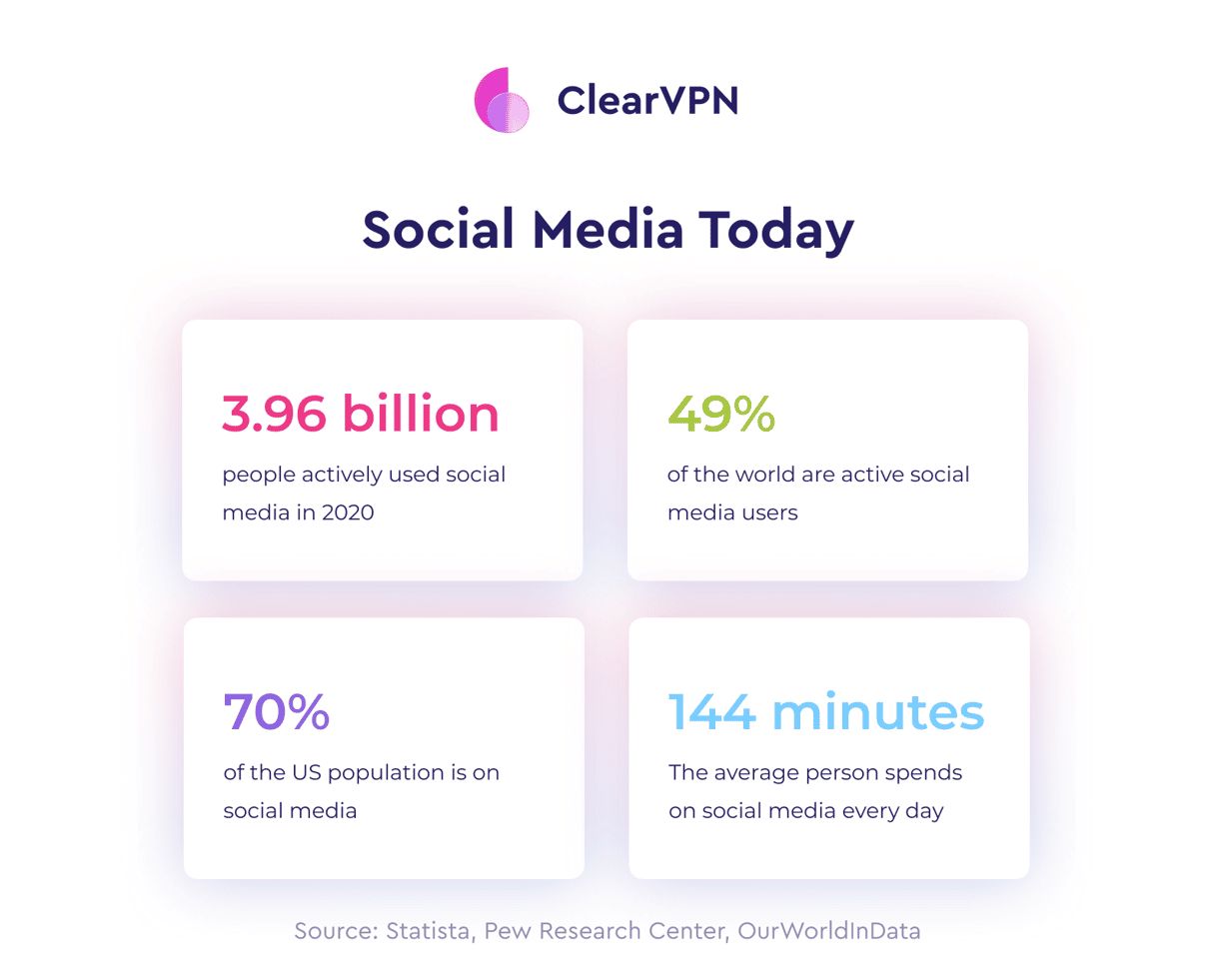
49% of the world uses social media actively, and this number will continue to grow in the future. Now, try to guess — what's the most popular social network?
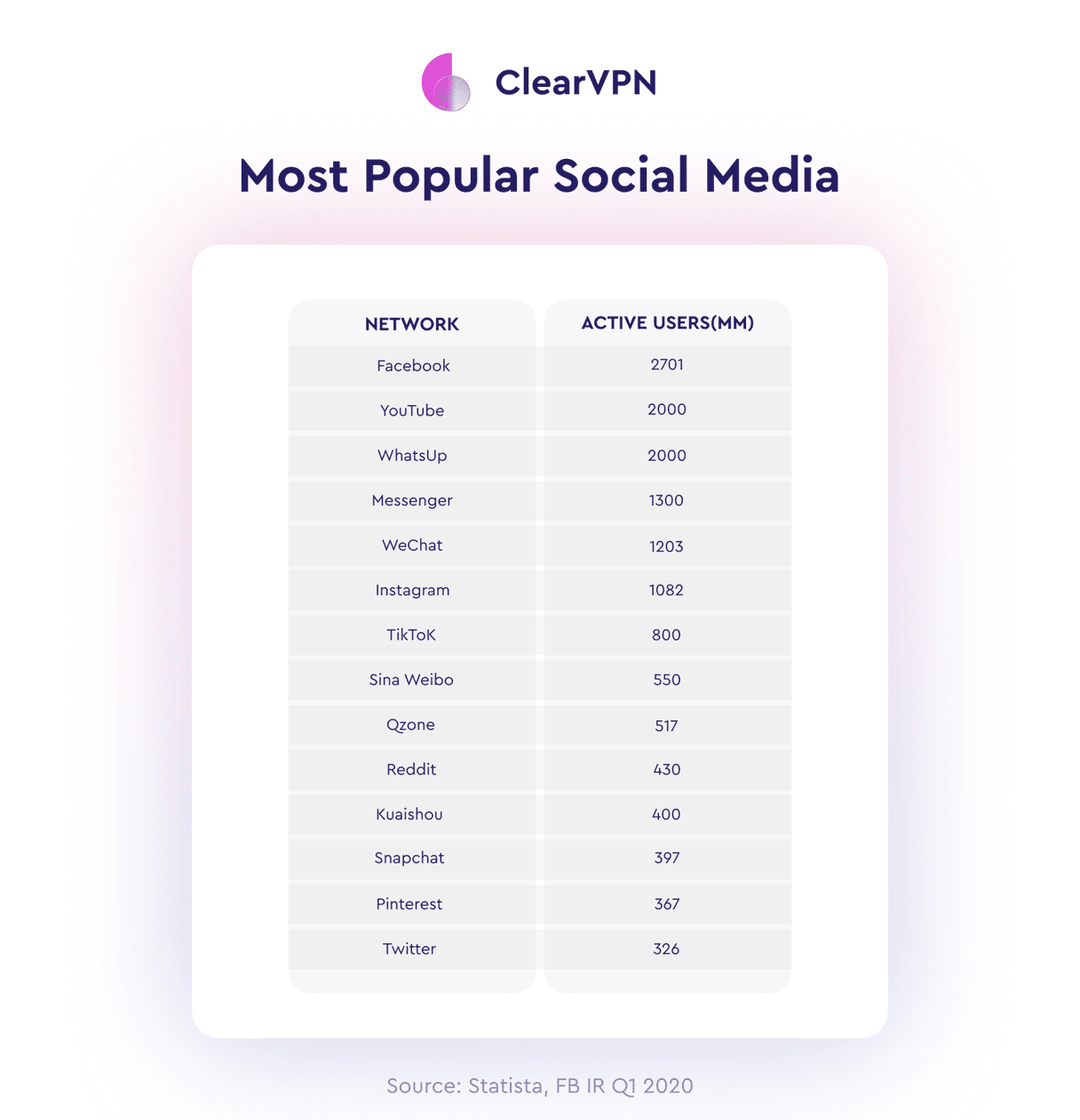
We bet you can tell without even looking at the numbers. It's Facebook, of course. If we consider a well-developed country like the USA, an estimated 67.4% of Americans used Facebook actively in 2020.
What you think you share vs. what you actually do
Let's first look at how they do it.
Social media record all interactions the user makes on their website. This includes reactions, comments, profile views, even the amount of time spent on a post. And this surveillance often goes beyond the social media website.
33% of all websites on the internet have some Facebook Trackers, meaning they will record user activity and associate it with its Facebook profile. 10% of websites have a Facebook Pixel — a tracking technique that's just a 1x1 pixel that records all the user interactions on a website. Google has its trackers on 85.6% of the websites.
We've dived deep into the Data and Privacy Policies of the most popular social networks. Here's what they collect.
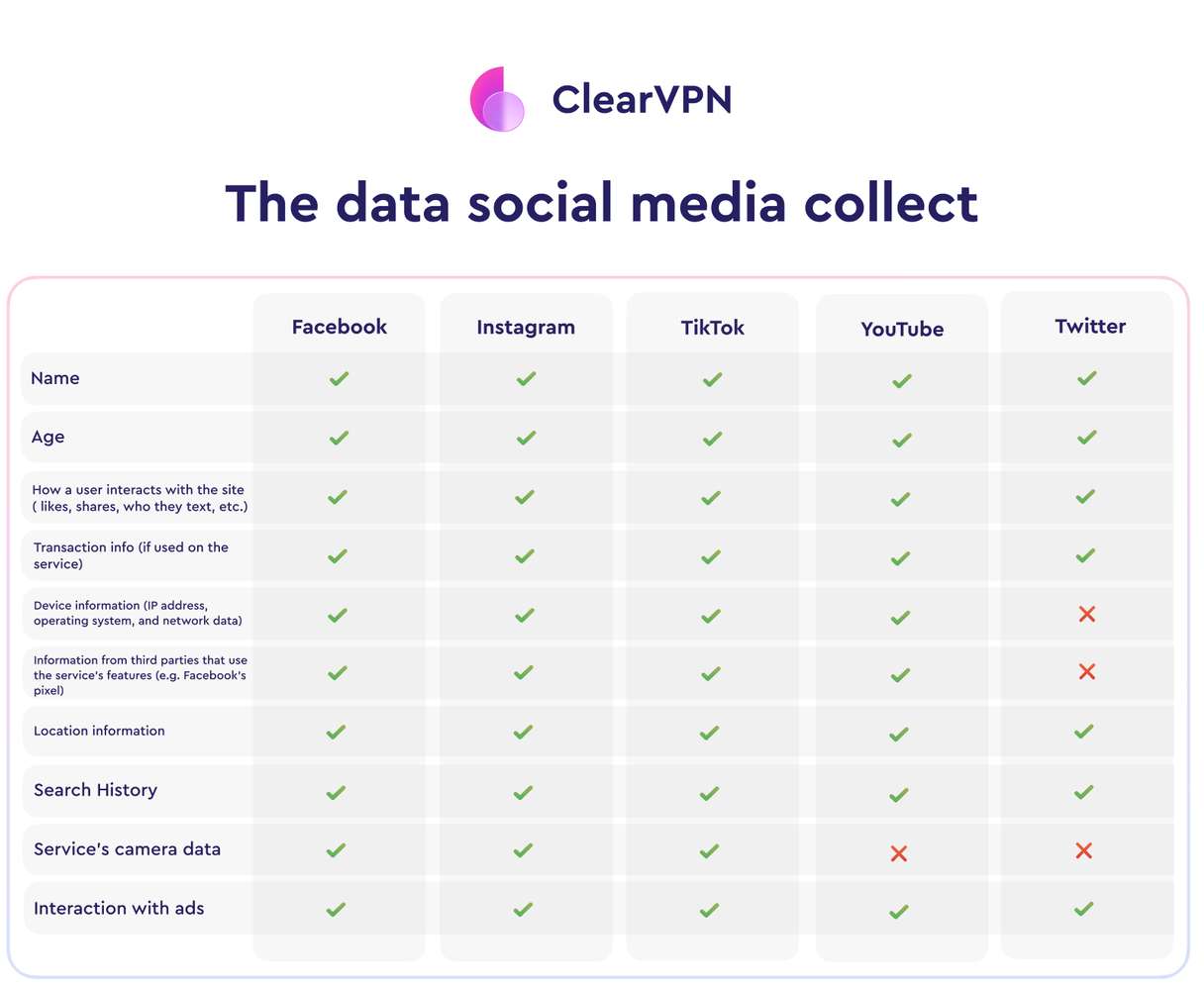
Almost all social networks collect information about their users' location, search history, how they interact with their services, ads, and other users. Facebook, Instagram, and TikTok also collect all the video and photo data users make with their in-app cameras. Here's what the most popular messenger apps collect.
Your devices send a big amount of personal data to social media. This information can go through insecure networks, like free Wi-Fi hotspots in airports and cafés, easily exploited by hackers and cybercriminals. One of the ways to secure the connection between the device and the social network is to use a VPN (short for a Virtual Private Network). MacPaw's own ClearVPN is the first personalized VPN solution for users who want to expand and protect their online experience hassle-free. It has ready-made shortcuts to ensure your online interactions are private and protected. Learn more about ClearVPN.
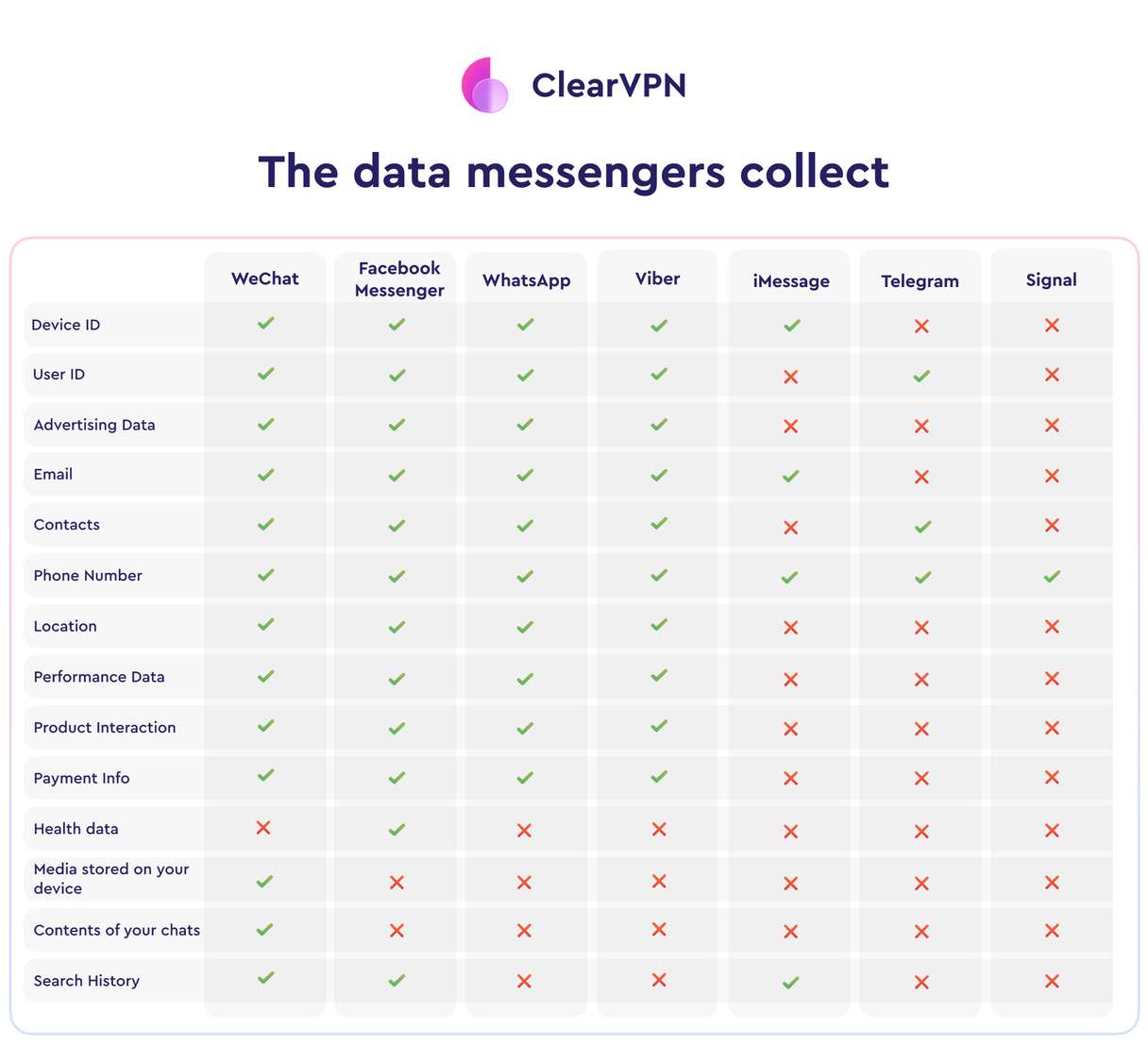
Messengers gather less personal information than social networks. Still, some of them do collect impressive amounts of data. WeChat is the winner here. A Chinese messenger collects contents of user chats and media stored on the users' devices.
When you become the product
Social networks collect the data to provide businesses with the right audiences to sell their products. All the aggregated data helps them build a unique profile for each user with their interests, likes, and dislikes. Here's how big the advertising business of Facebook is.
_1625052087.png)
In countries with oppressive regimes, they can provide the information they gather to the government. Here's who can get the users' data from social media.
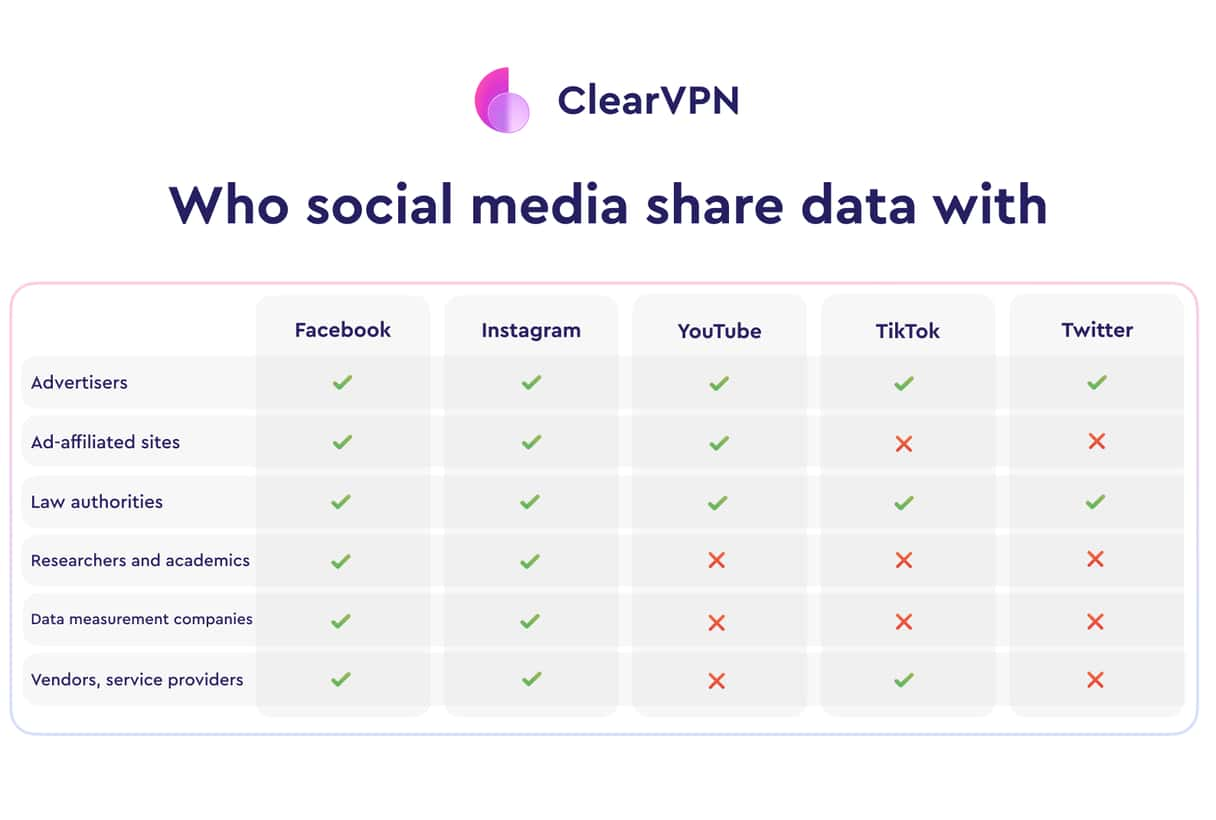
All social media share the accumulated data with advertisers. Facebook says it doesn't share data that personally identifies a user without permission. Still, it does share demographic info with advertisers to show how their ads are performing. TikTok and Twitter share only aggregated user info, which advertisers can't use to identify a user personally.
The psychology behind the social media
“I have had a number of clients in the past ten years who typically show no signs of perceptual conflicts (psychosis) but who have started displaying mild to moderate paranoia subsequent to their use of social media and online shopping. My patients with increased paranoia start speaking as if there is an actual person or persons who are monitoring their personal activity.
At other times the paranoia occurs subsequent to behavior that they want to remain hidden. For example, if a person who is in a relationship checks out a dating app.
Typically, a good dose of education will resolve such feelings of paranoia. Left unchecked, however, such bouts of paranoia can continue to grow and become more complex and start to interfere with activities of daily living. In such cases, professional assistance may be required to sort out the perceptual conflicts.“
Anthony Alan Thomalla, a licensed psychologist
The hunt for your social media data
Collected data to influence people's decisions
And we don't mean just buying things. The most significant example of social media used to influence people's political choices was, of course, Cambridge Analytica. The firm took an active part in the 2016 United States presidential election and the Brexit referendum. In 2018, former employees of Cambridge Analytica said the company obtained the personal data of millions of Facebook users and used it for political advertising. The firm targeted specific groups of people — the ones who haven't made their choice. It used profiles of their current likes and dislikes and influenced people by presenting them with personalized ads. According to the whistle-blowers, it used fake news too.
On the subject of fake news. Here are some statistics on fake news in the USA and how people treat them.
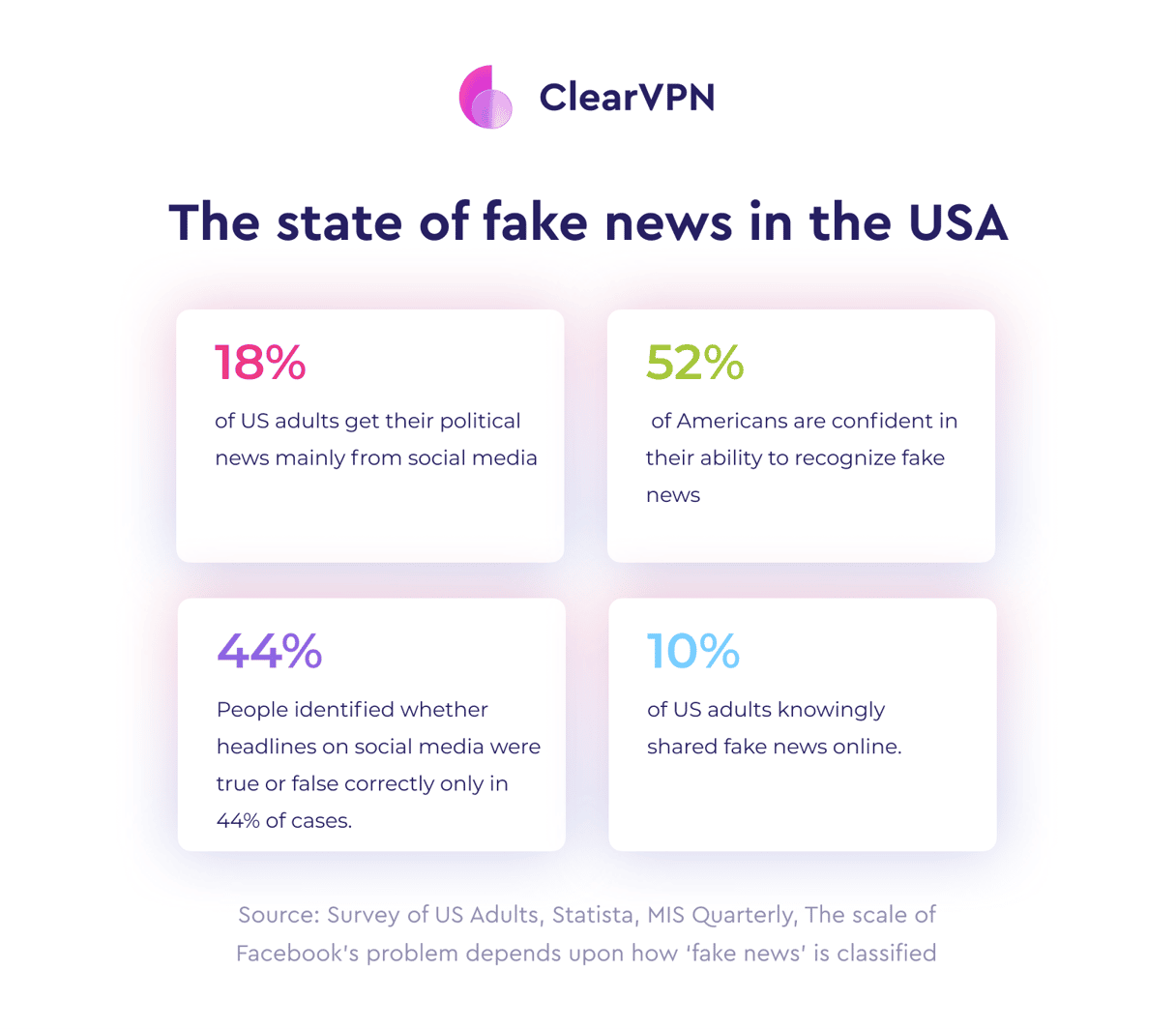
Social media do not serve only as a way for us to communicate with our friends and family anymore. 18% of US adults have social networks as their primary source of political news. People can change their minds over something that isn't even true but was created specifically for them. Although many believe they can identify fake news, people correctly asserted only 44% of headlines from social media.
Collected data can go public due to a data breach
Data breaches can be a result of a hacker attack or an employee error. As a result, users' records with their logins, passwords, and many other personal things go public on the web.
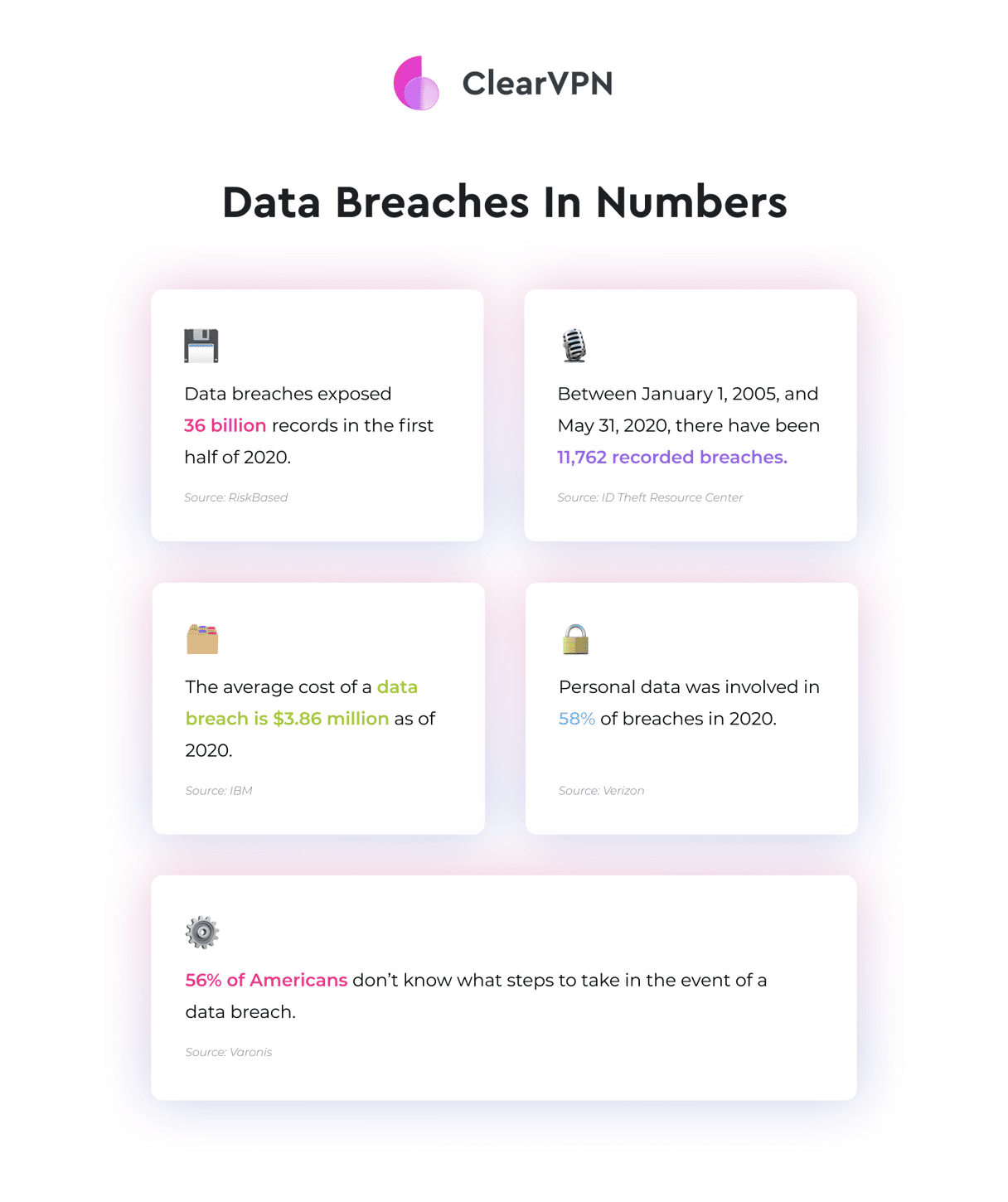
Social media breaches also happen and endanger the data of their users. In 2021 533 million Facebook users' phone numbers and personal data have been leaked online, according to Business Insider. You can find a list of most data breaches from The Verge here.
In conclusion
All social networks collect personal information and share it with advertisers, so the best way to secure your data is to not put anything sensitive there in the first place. Also, using a VPN can protect your social media data when on insecure networks, like free Wi-Fi hotspots.
Messengers also collect user information, so the best way to protect it is to choose a secure messenger. Pay attention to those that have end-to-end encryption by default. This includes Signal and (surprisingly!) Viber. Although the latter one collects more user info than, for example, Telegram, it has end-to-end encryption for all chats, which Telegram only has for its secret chats.
Methodology
To build the infographics, we've analyzed open data, available statistics, and Privacy Policies of the most popular social networks and messengers, as well as numerous additional sources listed below
Thanks for your attention!
Questions and feedback are welcome at [email protected]
Sources
Facebook Messenger Privacy Policy
How do social media companies collect and use your personal data?
Social Network Usage & Growth Statistics
All the Ways Facebook Tracks You
WhatsApp Vs Signal, Telegram, Facebook Messenger: What Data Does Each App Collect?




